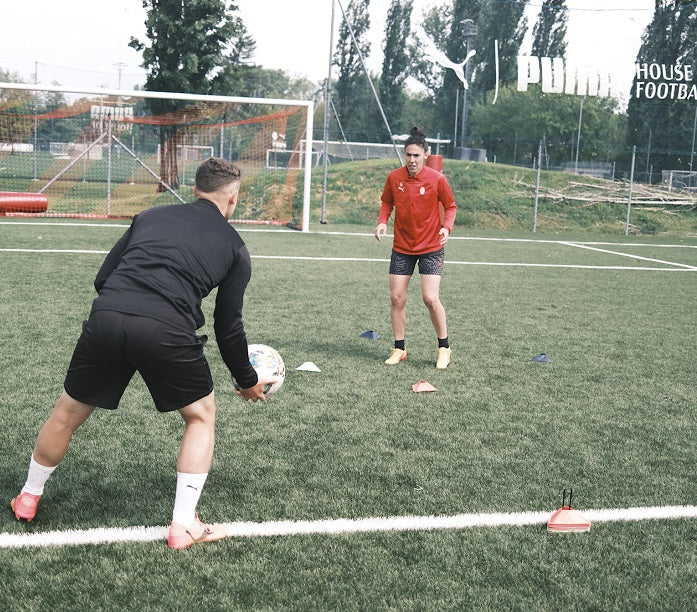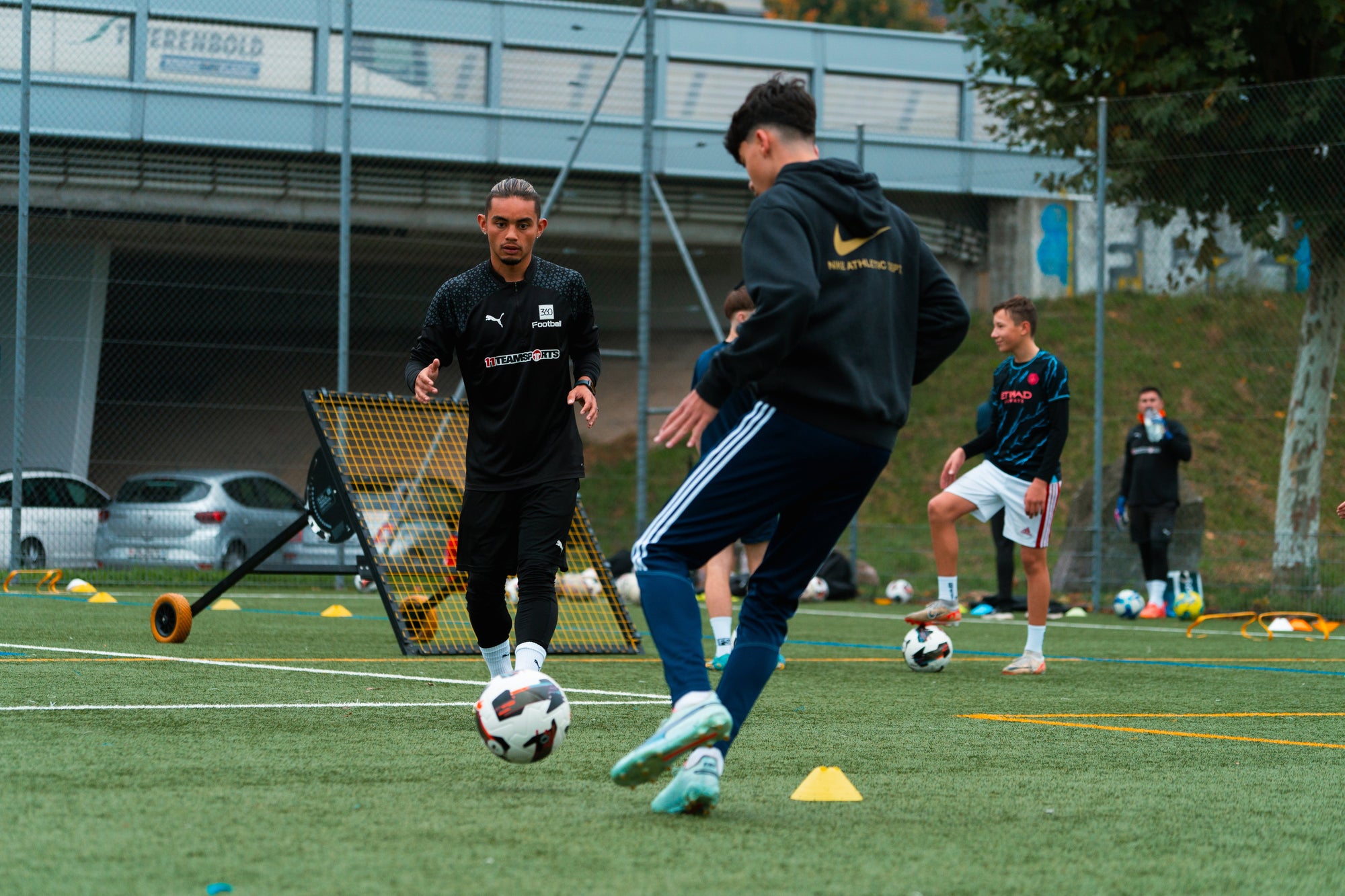In modern football, success is not only determined by technique or game intelligence – but also by athleticism.
Those who react faster, are stronger in duels and have power until the 90th minute gain a decisive advantage.
This is exactly where athletic training in football comes into play.
In this article you will learn
-
why athletic training is so important,
-
which training forms you should know,
-
and how to optimally combine your football training to get the most out of it.
⚽ Why athletic training is essential for footballers
It used to be true: If you have talent, you can make it.
Today, those who have talent AND athleticism will prevail.
Athletic training ensures that you…
-
sprint faster ,
-
last longer ,
-
and recover faster from stress .
Even technically strong players lose in crucial moments if they lack explosiveness or power.
Targeted athletic training helps you adapt your body to the high demands of the game.
💥 The 4 most important pillars of football athletic training
1. Speed
Speed is more than just sprinting.
Football is about acceleration, changes of direction and reactions .
Exercises such as running ABC, cone sprints or reaction exercises with a ball are essential to becoming more explosive.
2. Force
Strength training ensures stability in duels, better shooting power and fewer injuries.
You don't have to become a bodybuilder – functional strength training with your own body weight, resistance bands or medicine balls is often enough.
3. Endurance
Good basic endurance is important to be able to perform consistently for 90 minutes.
In addition to interval runs or game forms, targeted athletic circuit training helps you improve your fitness in a football-specific way.
4. Mobility and stability
Mobility and core stability are the basis of every movement.
They ensure that you move efficiently and minimize the risk of injury.
Incorporate stability exercises and stretching into every workout—especially for the hips, ankles, and core.
🧩 How to combine technique and athletic training
You will achieve the greatest effect if you combine both :
-
Technical training with the ball (e.g. dribbling, ball control)
-
-
short athletic stimuli (e.g. sprints, jumping power, stability)
-
This is how you learn to perform technical actions under fatigue – just like in the game .
An example:
3 × dribbling courses → 5 sec. sprint → 2 jumping exercises → finish on goal.
This will improve your coordination, strength and explosiveness at the same time.
📈 Athletic training for different positions
| position | Training focus | Example exercises |
|---|---|---|
| striker | Explosiveness, jumping power, acceleration | Sprints, plyometrics, jumping power |
| midfield | Endurance, core stability, change of direction | Interval runs, balance exercises |
| defender | Maximum strength, balance, reaction | Resistance training, partner exercises |
| Goalie | Explosive strength, coordination, mobility | Medicine ball throws, lateral sprints, mobility |
Each position has different athletic demands – but all benefit from a holistic training approach.
🧠 Common mistakes in athletic training in football
❌ Too much focus on mass instead of function
→ The goal is powerful muscle strength , not muscle volume.
❌ No clear structure
→ Without a plan, you will train inefficiently – plan two athletic sessions per week.
❌ Lack of regeneration
→ Muscles grow during rest. Plan active recovery and sufficient sleep.
🚀 How to get started right – with individual training
The most important thing: athletic training must be individually tailored.
Every player has different strengths, movement patterns and potential.
Professional coaching helps you work specifically on your weak points – whether speed, strength, or explosiveness.
👉 If you would like to be looked after personally,
Secure your individual training now at 360Football:
👉 View personal and small group training
There you will find all information about individual training, technique, athletics and performance programs –
especially for footballers who want to take the next step.
🔚 Conclusion
Athletic training in football is no longer an extra – it is mandatory.
Anyone who regularly works on their explosiveness, strength and stability,
will perform faster, more robustly and more consistently on the pitch.
💡 Start now with a clear plan, professional support and the right attitude.
Because: Your body is your most important tool as a footballer.


